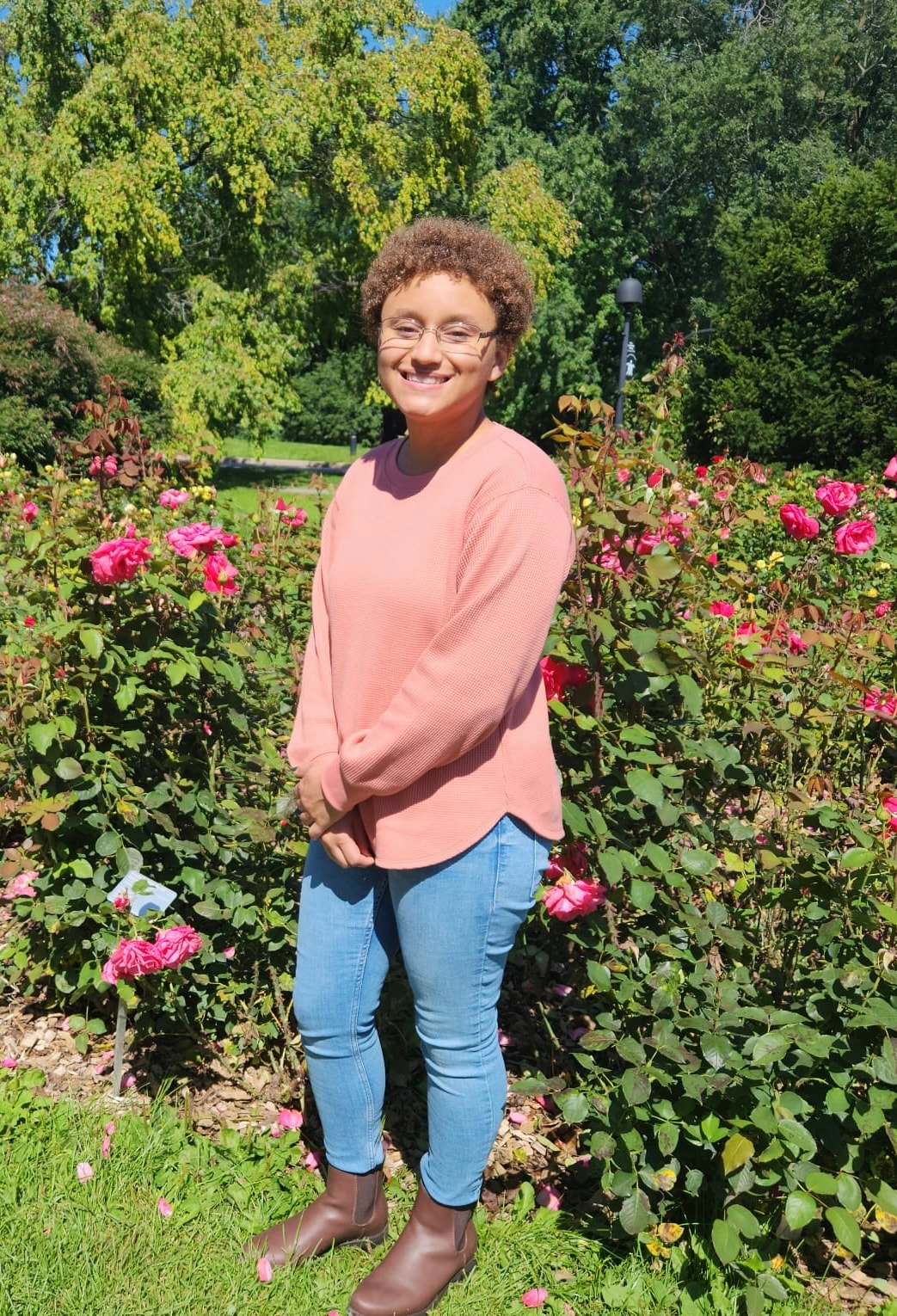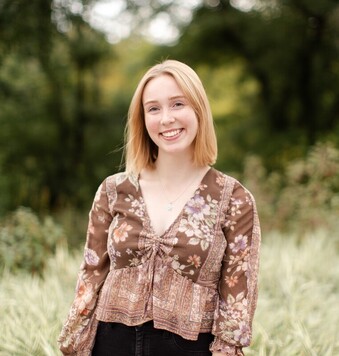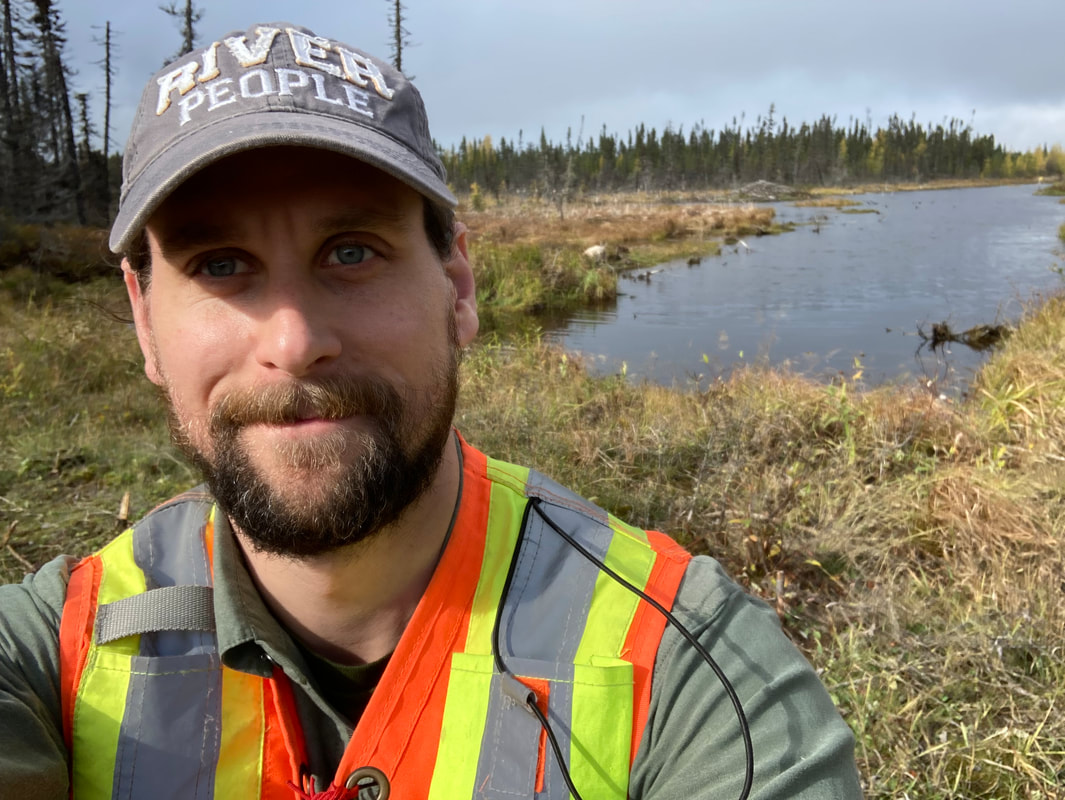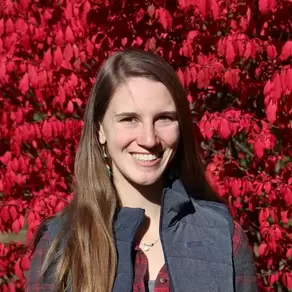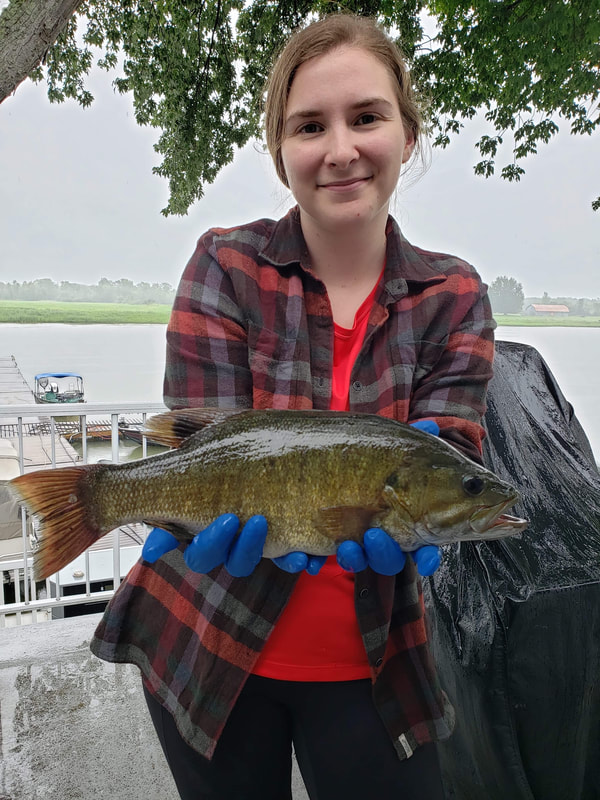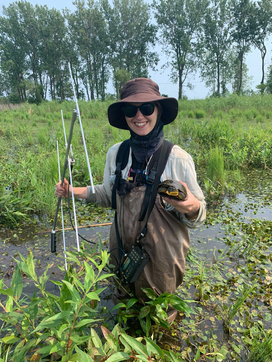Quinn Webber (he/him)
|
I am a behavioural ecologist interested in the intersection between animals, parasites, and the environment. Originally from Winnipeg, I completed my BSc Honours at the University of Winnipeg in 2013 and my MSc at the University of Winnipeg in 2016 where I focused on how animal personality and social behaviour affect parasite dynamics in bats. In 2016, I moved to St. John's Newfoundland and attended Memorial University of Newfoundland, where I finished my PhD on caribou social behaviour and space use in 2020. I was then a (remote) Post-Doc at the University of Colorado Boulder focusing on territoriality in red squirrels. In 2022 I started as an Assistant Professor in the Department of Integrative Biology at the University of Guelph.
Email: qwebber[at]uoguelph[dot]ca Twitter: @webber_quinn |
MSc students
Teya Mathews (she/her)
|
I am a Master's student in Dr. Webber's lab studying the interaction between behaviour in big brown bats and the spread of ectoparasites. I began my journey in wildlife research during my undergraduate years when I studied animal personality in freshwater fish native to Costa Rica. I will also continue to study animal personality in Dr. Webber's lab as part of my thesis. In my free time I enjoy crocheting, bird watching, watching netflix, video games, and reading!
Email: mathewst[at]uoguelph[dot]ca |
Arya Horon (she/her)
|
In 2021, I completed my BSc at the University of Alberta where I studied parasites in urban coyotes and community dynamics at cougar kill sites for undergraduate research projects. Outside of school, I’ve been fortunate to be able to combine my love for wildlife research and travel by working in a diverse range of ecosystems including the dry forests of Madagascar, the mountains of Banff, and the savannahs of Kenya. For my MSc research, I am evaluating the relationship between dynamic resource phenology and woodland caribou migration in northern Ontario using the green wave hypothesis framework. This work is co-supervised by Dr. John Fryxell. In my free time, you might find me reading, rock climbing, or coaching gymnastics!
Email: ahoron[at]uoguelph[dot]ca |
Jordan Heppell (he/him)
|
I am an MSc student interested in the fascinating world of wildlife behavior and habitat dynamics. My academic journey began with a BSc in Biology from Vancouver Island University, where I completed my undergraduate thesis on best practices for using camera traps to study species responses to persistent drought near Nanaimo, BC. My MSc research will be at the intersection of ecological data integration and predictive modelling. Specifically, my focus will be on investigating the feasibility of using camera trap and LiDAR data to develop predictive models for species occurrence and movement speed along linear features in northeastern Ontario. This work is co-supervised by Dr. John Fryxell. In my free time, you'll often find me enjoying the company of my fiancé and our very opinionated dog. I also enjoy researching and hyperfocusing on new hobbies, diving into them headfirst only to abandon them for new and exciting interests just a few weeks later.
Email: jheppell[at]uoguelph[dot]ca |
|
|
PhD students
Alex Cosby (she/her)
|
Being from Manitoulin Island, growing up I was surrounded by Indigenous values related to environmental stewardship, shaping my career goal of studying equitable wildlife management. I graduated from my BSc at the University of Guelph in 2021, then moving on to complete a Masters in Public Issues Anthropology with a specialization in One Health in the LEMR lab, where I studied the parasitic consequences of humans and lemurs sharing and environment in Madagascar. For my PhD research I am returning to Manitoulin to study foraging behaviours in little brown bats, leveraging a two-eyed seeing approach. Being passionate about my community and animal welfare, in my free time I volunteer with ISP classes and animal rescue groups, as well as play hockey, hike, and cook.
Email: acosby[at]uoguelph.ca |
Allegra Love (she/her)
|
I am a PhD student interested in disease and spatial ecology. I completed my MSc in the Hendry and Fussmann labs at McGill University in 2021, my research projects have focussed on how parasites impact different aspects of ecology including colour patterns. I have also worked in open science, developing tools to monitor academic author sharing behaviours. This has given me hands-on experience with open science practices, software development, and project management. Currently my PhD project investigates the applications of the Landscape of Disgust and Fear using the Fogo Island caribou system. I like to read or be outdoors as much as possible in my free time!
Email: allegra[at]uoguelph.ca Website: https://allegrapearce.weebly.com |
Shayla Jackson (she/her)
|
I am a current PhD student in the Web lab interested in behavioural ecology. I completed my BSc at the University of Western Ontario and remained there for my first MSc, supervised by William Roberts, in which I investigated canine cognition, and specifically the ability of dogs to discriminate quantity via olfactory cues. Realizing I wanted to spend more time outside, I travelled to Winnipeg, MB, where I completed a second MSc, supervised by Susan Lingle, investigating the diet and behaviour of coyotes living in proximity to cattle. Presently, I will be comparing wolf and coyote movement and reproductive behaviour across Ontario for my PhD. In my free time, I can usually be found deep in the forest with my own little wolves.
Email: sjacks28[at]uoguelph.ca |

